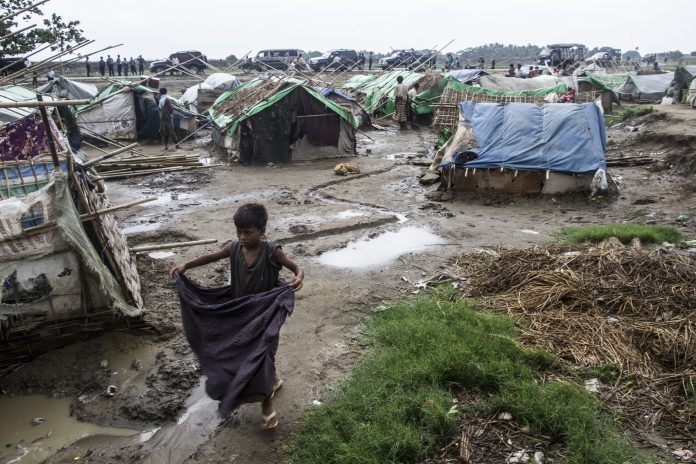As the United Nations Human Rights Council (UNHRC) proceeds with its 42nd Regular Session, the human rights concerns in Burma (Myanmar) remain urgent. The Rohingya who fled to Bangladesh, following a genocidal campaign by Burma’s army, have seen no changes in circumstances or policies that would allow them to return safely as citizens with full rights consistent with other minorities in Myanmar. The Rohingya still living in Burma face regular human rights violations, attempts to delegitimise them through National Verification Cards, and are cut off from aid and NGOs offering life-sustaining assistance. Burma’s civil war in Kachin, Shan and Rakhine State has intensified during the past year with signs of the conflict worsening as civilians are displaced, murdered, tortured, and arbitrarily imprisoned. Non-Rohingya Muslim community continues to face increasing systemic oppression which has drastically eroded their basic human rights. Student groups, journalists, and peaceful anti-war movements have all faced harsh crackdowns by the government and security forces despite the international perception that Myanmar is more democratic now than in the previous years.
In response to these issues four organisations, namely the Arakan Rohingya National Organisation (ARNO), the Burma Human Rights Network (BHRN), the Burmese Rohingya Organisation UK (BROUK) and the Rohingya Women Welfare Society (RWWS) call upon the UN Human Rights Council (UNHRC) to take important measures.
They urged to UNHRC, before the repatriation to Myanmar citizenship should be restored to all the Rohingya. Rohingya should be able to return to their villages and towns but not to any camp and international community should provide protection to the Rohingya who returned and remained in Myanmar.
They point out that there remains a strong need for observation and reporting on the worsening situation of Burmese Muslims rendered Stateless in the Thai border region due to bigoted and restrictive policies established by the Burmese Government to inflict harm on minority communities through denial of full citizenship rights.
They urge UNHRC to provide a mandate for the Office of the United Nations High Commissioner for Human Rights (OHCHR) and the Special Rapporteur regarding the situation of human rights in Burma. This mandate should focus on human rights violations, violations of international and international humanitarian law in the conflicts in Rakhine and Shan States.
The four organisations insists that must also be proper follow up to the recommendations provided by the IIFFMM and the Special Rapporteur by United Nations mechanisms globally and locally in Burma. The UN must ensure regular monitoring and reporting to the UNHRC with dedicated and interactive dialogue on the situation of human rights in Myanmar at the UNHRC and UN General Assembly.
They call on UNHRC to not afford legitimacy to Burma created Independent Commission of Enquiry or the Court of Inquiry, as its mandate does not address the issue of accountability and the methodology utilised by the Independent Commission of Enquiry and the Court of Inquiry are deeply flawed.
The UNHRC should hold a special session or form a Panel of Experts to address accountability in all parts of Burma where Genocide, Crimes Against Humanity, or War Crimes have taken place. These areas must include Kachin, Chin, Shan and Karen States, in addition to Rakhine State.
The UN’s Secretary General’s brief investigation on Burma found systemic failure in preventing the Rohingya Genocide and urge the Secretary General to now conduct a full and independent inquiry into the UN’s failures, including recommendations for action to ensure individual accountability. This should include prompt implementation of reforms to prevent the recurrence of the “systemic” failures and “obvious dysfunctional performance” detailed by the report. Practical steps to hold accountable those UN officials responsible before, during, and since 2017’s the genocidal campaign by Burma’s army should also be taken.
Finally, the organisations call on UNHRC to use its platform to further the prospect of sanctions against the Burmese Military and its business interests owned directly by Military leadership or through cronies known to work closely with the military.

